Konkani Song, of which Goan Song ins a pre-eminent branch, is a treasury of the traditional music of the Indian subcontinent. Its 35 types include the monophonic and harmonic varieties, the former prevalent before the Portuguese brought Western music into India, and the latter, consequent to the Western impact. It was in Goa that Indian musicians first began to compose in Western musical forms, incorporating into them motifs and nuances of their own immemorial tradition. Among the 35 types figures the Mando, a dance song typically of quatrains, often having appended choruses, set in six-four time. Its main themes are love and events, the latter social and political in nature. But its favorite theme is love, oriented toward marriage, where the lover yearns for union with his beloved, achieves it, or laments his failure to realize it. The melody of the Mando is uniformly melancholic, but the text scintillates with luminous imagery, as of suns, stars, flowers and diamonds. As a dance, the Mando, India’s ballo nobile, was the last aristocratic dance created anywhere.
Song of Goa: Mandos of Union and Lamentation
$24.30
$27.00
In stock
Free & Quick Delivery Worldwide
All orders amounting to US$ 50 or more qualify for Free Delivery Worldwide. For orders less than US$ 50, we offer Standard Delivery at $14 per book.
ABOUT THE AUTHOR Antonio Da Costa
Antonio Da Costa (1943), a priest by ordination, a psychotherapist by profession and a musician by vocation, is Director of Counseling, Terros Behavirol Health Services, Arizona. As a musician he was trained in the Saligao and Rachol Seminaries, the London Trinity School of Music (in Bombay), and at the Juilliard School of Music and Columbia University, New York. Inspired by his mother Arsentina, he began collecting specimens of traditional Goan Song from the age of 16, and for several years broadcast mandos, dulpods, deknnis, fugrhis, hymns and motets over Radio Goa, with the assistance of the choral groups he had founded and directed. He also organized concerts of Goan music in Bombay, Pune and Mangalore, to expose Goan audiences to their traditional musical treasures.
ABOUT THE AUTHOR Jose Pereira
JOSE PEREIRA, Born in Bombay in 1931, B.A. (Hons.) in Sanskrit, University of Bombay (1951). Ph.D. in Ancient Indian History and Culture, University of Bombay(1958). Adjunct Professor of East-West Cultural Relationships at the Insituto Superior de Estudos Ultramarinos, Lisbon (1959-1960). Research Fellow in the History of Indian Art, School of Oriental and African Studies, University of London (1962-1966). Research Associate in the History of Indian Art, The American Academy of Benares, Varanasi(1967-1969). Professor of Theology, Fordham University, New York (1970 to present). Pereira has published 14 books and over 130 articles on theology, history of art and architecture, and on Goan and Konkani culture, language and music. MICAEL MARTINS (29 October 1914-9 February 1999) born at Ol-lli/Orlim, Goa, in 1914. Studied music in Goa, and in Bombay with renowned music teachers. Performed for various musical societies in Bombay and Delhi and directed musical groups like the Coro Sacro and the Micael Martins String Quartet. Conducted the opera Geisha (1953). Was orchestra leader of films (Films Division Orchestra, 1949, Rajkamal Kala Mandir Orchestra, 1949). Participated in concerts in Delhi, where, in 1962, he performed alongside Lata Mangeshkar and Mohammed Rafi, and, in 1972, at the inaugural function of the Delhi Symphony Orchestra. Martins began his research into traditional Goan Song in 1933. Collaborated with Jose Pereira in recording Goan songs from 1954, collecting as many as 11,000 numbers. Martins and Pereira published some of those songs in Marg (1954) and Goan Tribune (1956-1957). They also published monographs of Goan Song in A Sheaf of Deknnis (Bombay: Konkan Cultural Association, 1967) and “Song of Goa. An Anthology of Mandosâ€, in the Boletim do Instituto Menezes Braganca, no 28 (1981). Martins was a prolific composer of classical musical forms, incorporating themes of Goan folk and art song into his compositions. He composed masses, hymns, profane songs and instrumental pieces – particularly excelling in the latter, outstanding examples of which are the following:
Rapsodia (1952), Carnaval em Goa (1953). Quatro Aguarelas (1953), Crepusculo de Estrelas Moribundas (1960), and Festival (1971). Micael Martins is renowned as the greatest classical composer in the history of Goan music.
ABOUT THE AUTHOR Micael Martins
Micael Martins (1914-1999), of Ol-lli/Orlim, Goa. Studied music in Goa, and in Bombay with renowned music teachers. Performed ffor various societies in Bombay and Delhi, and led orchestras of films in Bombay. Began collecting traditional Goan songs, art and folk, in 1933, and collaborated with Jose Pereira in recording Konkani songs from 1954, collecting as many as s11,000 numbers. Martins incorporated several motifs from traditional Goan Song into his classical musical compositions.
reviews
0 in total
Review by Anonymous
Be the first to review “Song of Goa: Mandos of Union and Lamentation” Cancel reply
You must be logged in to post a review.
Bibliographic information
Title
Song of Goa: Mandos of Union and Lamentation
Author
Edition
1st ed.
Publisher
ISBN
8173052476
Length
viii+190p., Appendices; Index; 23cm.
Subjects

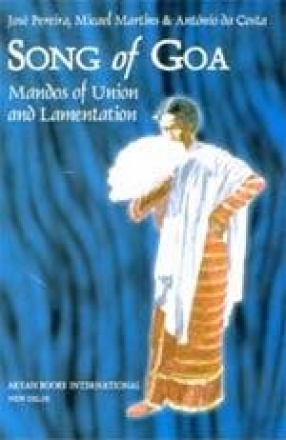
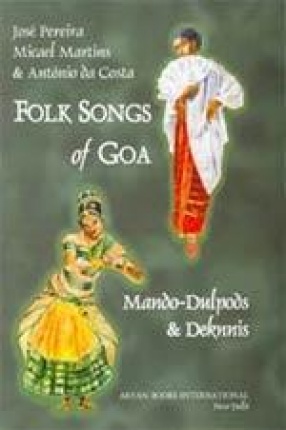
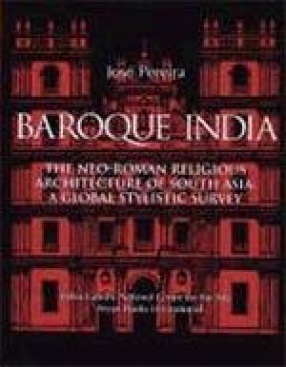

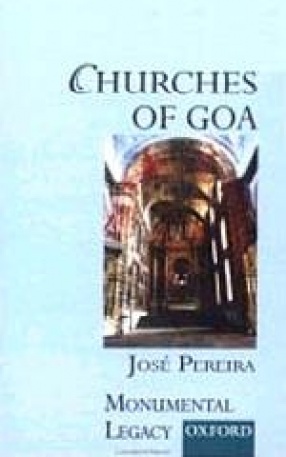
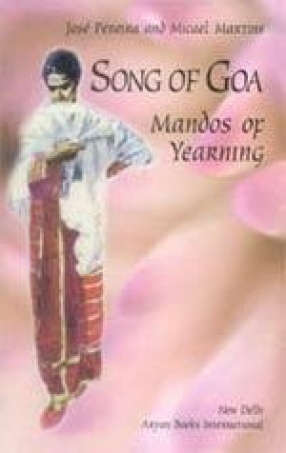
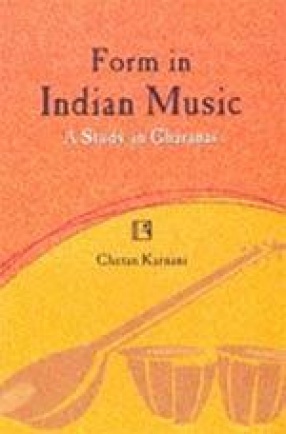
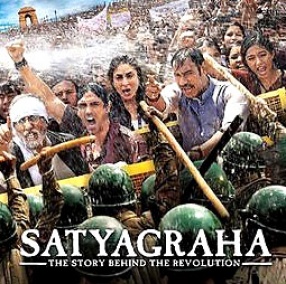
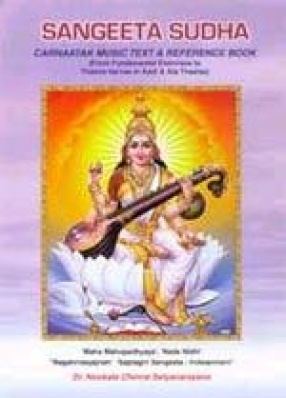
There are no reviews yet.